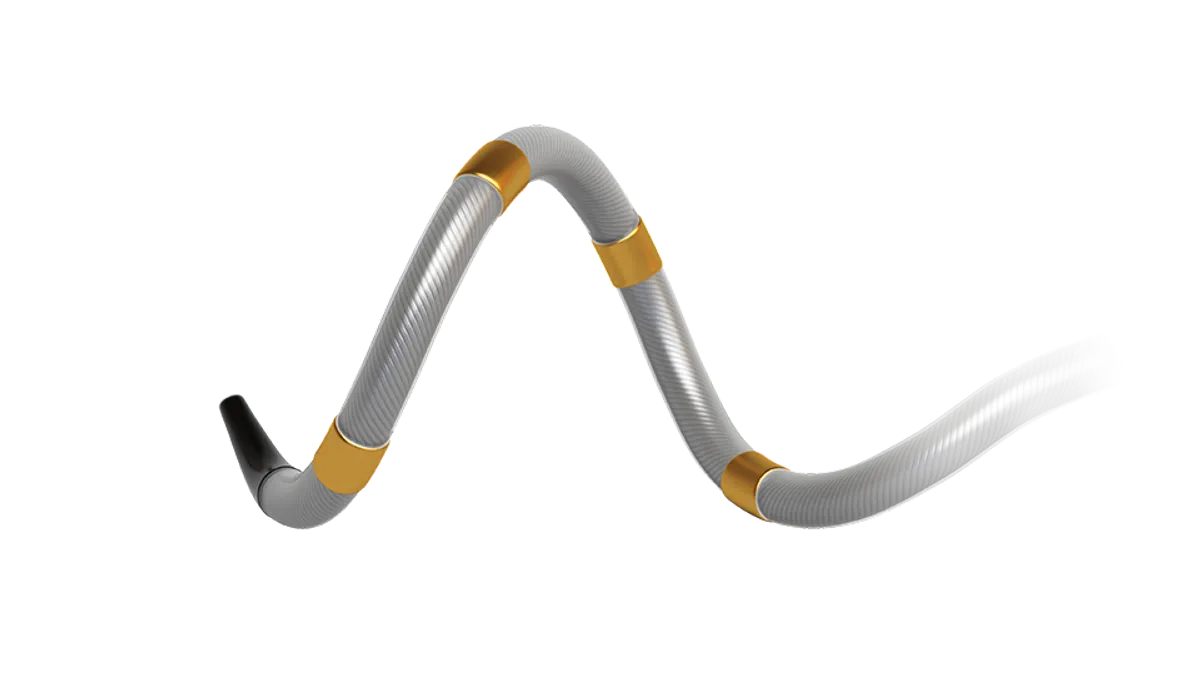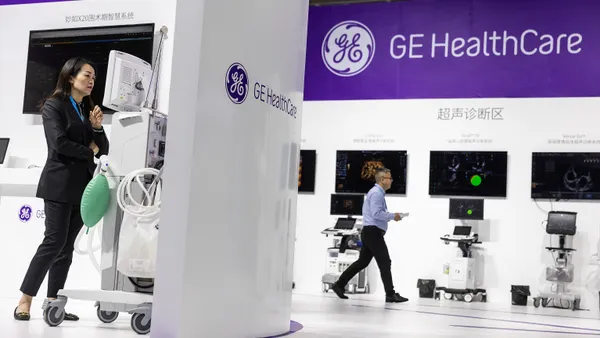Dive Brief:
- A slim majority of advisers on a contentious Food and Drug Administration panel Wednesday said the risks of Medtronic’s renal denervation system outweigh the benefits for patients with uncontrolled hypertension.
- Failure to get the panel’s support in the benefit-risk assessment is the latest stumbling block in the company’s efforts to bring a new, device-based treatment for high blood pressure to market, following a pivotal trial that missed its primary endpoint last year.
- Undeterred, Medtronic said the physicians’ advisory vote will be considered as the FDA reviews its application for U.S. market approval. "We will continue to collaborate with the FDA on bringing a new option to the millions of people living with high blood pressure,” Jason Weidman, president of Medtronic’s coronary and renal denervation business, said in a statement after the panel meeting.
Dive Insight:
While the FDA usually follows its advisory committees’ recommendations, it is not legally bound to do so, and the final decision rests with the agency.
The narrow 6-7 defeat on the benefit-risk profile of Medtronic’s Symplicity Spyral blood pressure procedure came after one panelist abstained from voting on the question, causing the chair of the circulatory system devices panel to break the tie. Medtronic garnered a 7-6 vote favoring the effectiveness of the device and unanimous approval for its safety.
“It is important to note that the panel's vote is nonbinding and that the FDA may still approve the device. This is a disappointing outcome for MDT but doesn't close the door completely,” BTIG analyst Ryan Zimmerman said in a report to clients after the vote.
The split vote came down to the fact that Medtronic’s HTN ON-MED trial failed to meet its primary endpoint, and the HTN OFF-MED trial showed limited clinical benefits, Zimmerman said, echoing comments from some of the panel’s members.
“We have one study that is negative and one study that is minimally positive,” said Julia Lewis, professor of medicine in Vanderbilt University School of Medicine’s nephrology division, during the panel. “As far as I’m concerned, we still don’t know the efficacy of this. … To not have a definitive study that better defines that it is efficacious and in whom is actually a disservice to the public.”
Medtronic argued that it has studied renal denervation for more than 10 years in over 4,000 patients facing cardiovascular risks from high blood pressure.
"The Symplicity Blood Pressure Procedure has the potential to fill a significant unmet need in hypertension care," David Kandzari, principal investigator of the SPYRAL HTN-ON MED trial and chief scientific officer of the Piedmont Heart Institute, said in the company’s statement. "The totality of evidence demonstrated that there is a benefit with the Spyral RDN catheter, and there is no question about the safety of the procedure."
Noting panelists’ concerns that the procedure could become too widely used if approved, Stifel analyst Rick Wise said the outcome of the risk-benefit vote might have been positive if the device’s labeling indication were phrased differently.
“Predicting the FDA is challenging, but we could imagine approval scenarios where the indication language changes, the initial MDT label is highly limited, or a large-scale registry is set up to monitor patient outcomes,” he wrote in a report.
Medtronic has predicted renal denervation could be a multibillion-dollar market, and CEO Geoff Martha as recently as this week said the company has been “very confident” that the FDA would approve the device.
The company redesigned its renal denervation system after a clinical trial in 2014 also failed to meet its primary endpoint. The device delivers radiofrequency energy to nerves near the kidneys that can become overactive and cause high blood pressure.
On Tuesday, the FDA panel backed a competing system from Recor Medical, voting 10-2 that the benefits of that device outweigh the risks.











